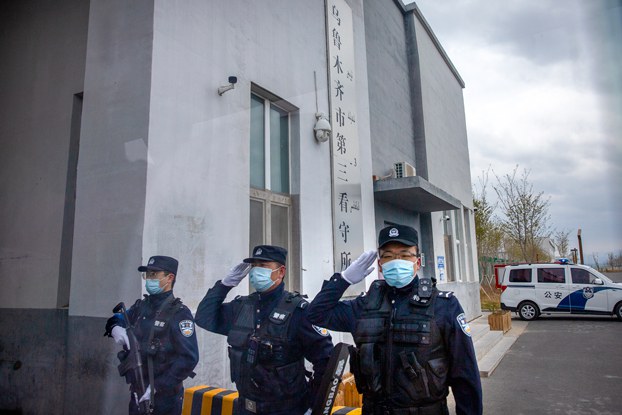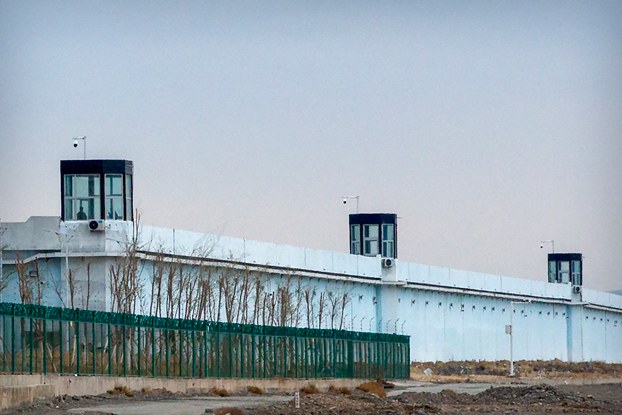A Uyghur butcher serving a seven-year prison sentence in southern Xinjiang for advising friends not to drink alcohol or smoke at a gathering has been released alive and returned to his family, sources with knowledge of the situation said.
It marks the first time that one of the roughly 100 jailed Uyghur residents from Xaneriq village had been released alive, said an Uyghur from the area who now lives abroad, but who did not give his name for fear of retribution.
Authorities freed Mahmudjan Muqeddem, 46, who hails from the Tawaqchi community of Xaneriq village, on April 11, he said. The village lies in Kashgar Yengisheher county in Kashgar prefecture.

A police officer from the Yenitam community in Xaneriq confirmed that Muqeddem, a butcher and farmer, had served seven years in a prison in Urumqi, capital of the Xinjiang Uyghur Autonomous Region, and was released on April 11.
The officer’s colleagues told him that Muqeddem was arrested on suspicion of religious radicalization for advising his friends not to drink or smoke at an event prior to 2016.
Initially, he was “educated” in a camp for two years, but in 2019, he was sentenced and transferred to prison, they said.
“The reason for arrest is that he stopped others from smoking and drinking,” said the officer. “He is not a religious figure.”
Extremist behaviors
Abstaining from alcohol is one of 75 different activities and behaviors identified by the Chinese government as a sign of potential religious extremism. It is listed in brochures distributed in some parts of Xinjiang to educate the public on how to identify extreme religious activities.
It is also a cause for jailing Uyghurs, who as Muslims abstain from drinking alcohol, as part of a larger effort by Beijing to eradicate Uyghur culture and religion.

Xaneriq village consists of 23 smaller communities with a total population of 31,000 people, averaging around 1,400 people in each community.
About 800 people live in Tawaqchi community, of which more than 100 were in prison, with some serving indefinite sentences in internment camps, the Uyghur expatriate said.
Since 2017, six others imprisoned were released dead, he said, though RFA could not independently confirm this.
Muqeddem’s release has offered some hope to others from the village’s Tawaqchi community worried out the fate of their imprisoned relatives, the expat said.
But because the butcher was considered to have committed one of the mildest “crimes” among those arrested, his release also caused concern about the fate of those serving sentences for more serious offenses, he added.
Translated by RFA Uyghur. Edited by Roseanne Gerin and Malcolm Foster.

